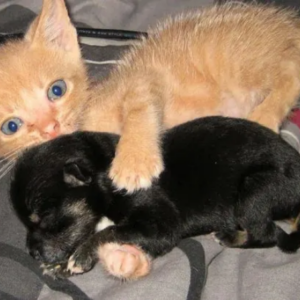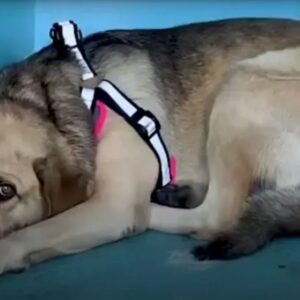A baby girl who was born with her brain outside her head has defied the odds to survive.
After four years of trying for a baby, Catherine Donlon, 40, and her husband, Mark, 46, discovered their unborn child was suffering from a rare condition known as encephalocele at their four-week scan.
The devastated couple, from Accrington, Lancashire, were recommended a termination, with doctors insisting it would be unlikely the the baby would survive the pregnancy.
Meet Karan Raj the NHS doctor and socialmedia sensation
Refusing to give up on their unborn daughter, the pair continued with the pregnancy, with their daughter Alana being born by C-section on March 15 2015, weighing 8lb 5oz.
The youngster, now three, was immediately rushed away to intensive care and underwent a grueling seven-hour operation to remove the external part of her brain at just eight days old.
Although allowed home a week later, Alana’s condition has left her severely disabled, with the youngster unable to walk, registered blind and suffering seizures every few weeks. She even self harms by cutting her face with her nails.
Ms Donlon said: ‘She may have her difficulties, but she’s a miracle baby and we adore her.’
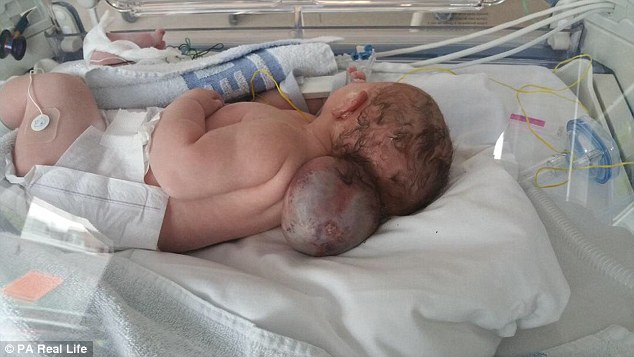
Alana, who was born with her brain outside her head, has defied the odds to survive
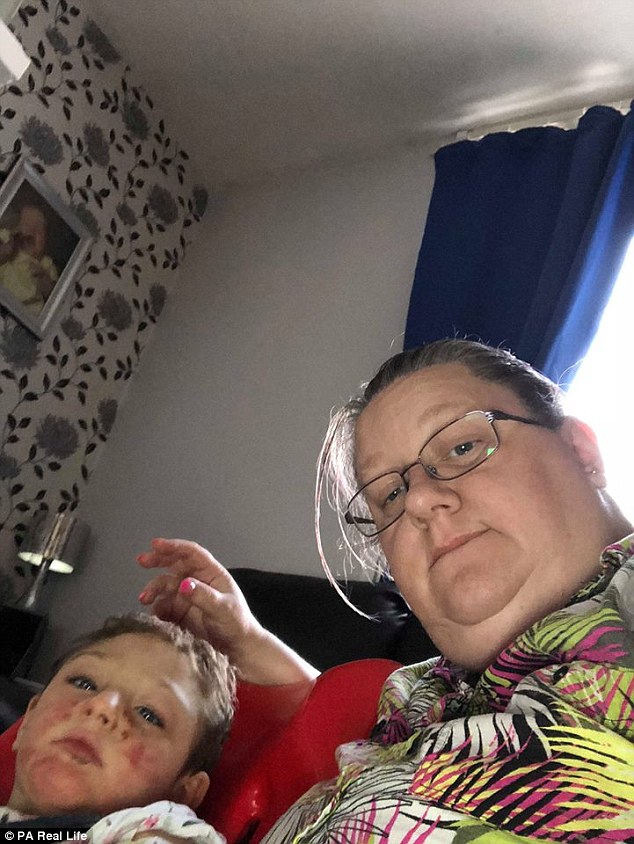
Alana (pictured with her mother Catherine Donlon), now three, had surgery to remove the external organ at eight days old, which has left her severely brain damaged and blind
‘I didn’t want to be the one to end her life’
Speaking about discovering their daughter’s condition, Ms Donlon, a checkout assistant, said: ‘Mark and I were determined to give her a chance.
‘The doctors said she would probably either die in my womb or shortly after she was born, but I’d tried for so long to have her that it just wasn’t an option for me.
‘I didn’t want to be the one to end her life.’
The couple, who also have nine-year-old called Emily, were told that if the infant survived in the womb, she would almost definitely die shortly after birth.
Ms Donlon said: ‘It was touch and go throughout, but it was quite an easy pregnancy. We just had to wait and see.’
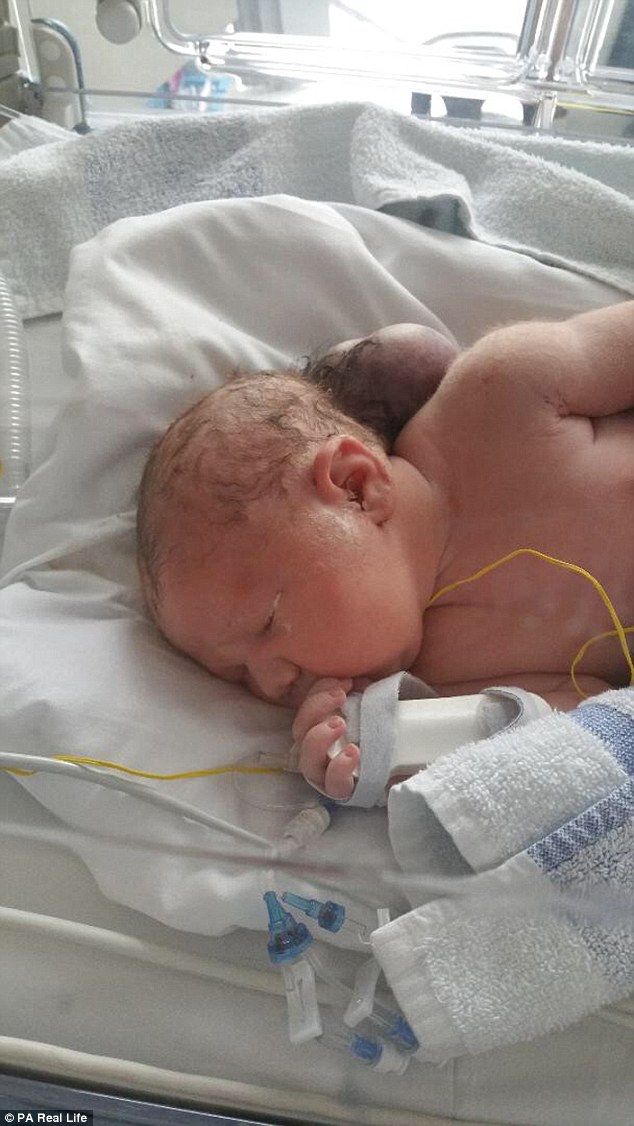
Alana was rushed to intensive care after birth and had grueling surgery at just eight days old
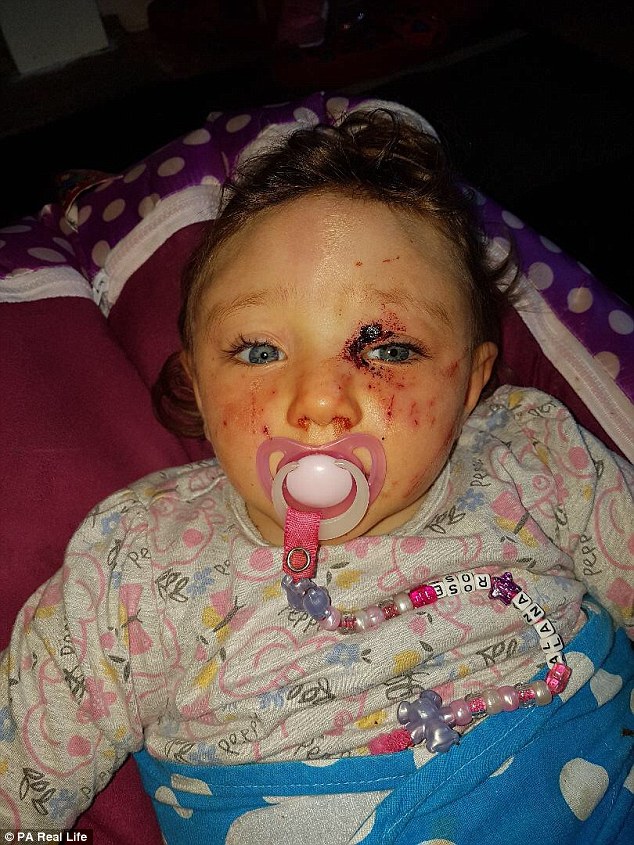
For unknown reasons, Alana self harms by cutting her face with her fingernails
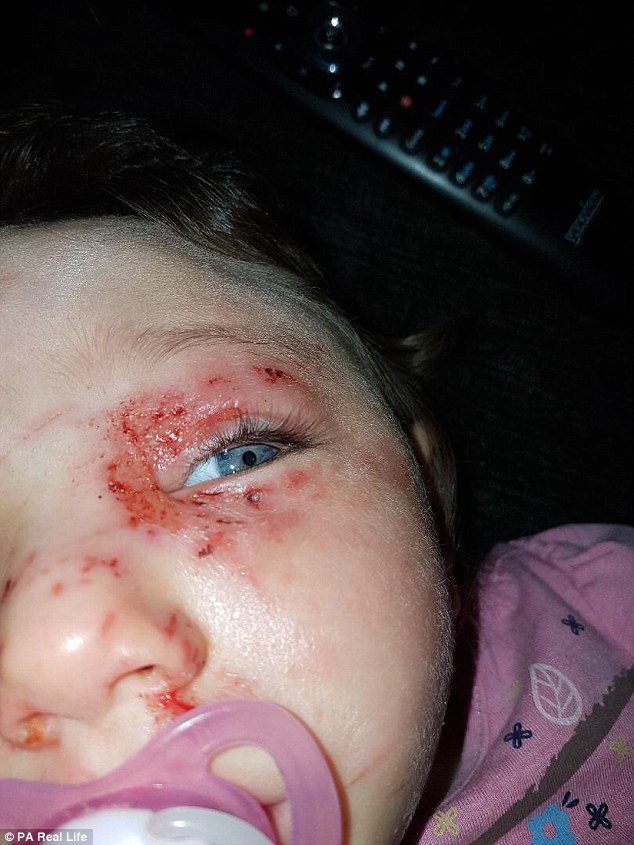
Alana’s face is covered in cuts unless she wears gloves and is watched constantly

The youngster, who will require full-time care all her life, cannot sit up by herself
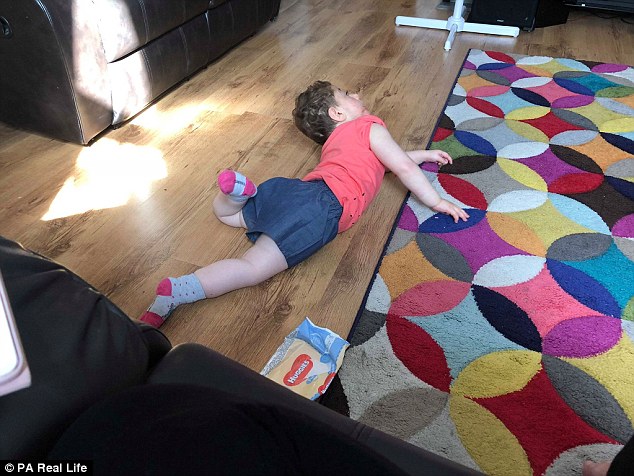
Despite her complications, Alana has just learnt how to roll over on the floor
Encephalocele is a rare birth defect where the structure that forms the brain and spinal cord folds and closes.
This causes a sac-like protrustion of the brain and its covering membranes through an opening in the skull.
It affects around one in 12,200 babies born in the US every year. Its UK prevalence is unknown.
Encephalocele’s exact cause is unclear but may be a combination of genetic and environmental factors, such as insufficient vitamin D and folic acid during pregnancy.
Treatment involves surgery to place the protruding brain back into the skull and close the opening.
‘To me she was beautiful’
Determined to see the pregnancy through, the couple were referred from the Burnley General to Saint Mary’s Hospital in Manchester, where a specialist team were on standby.
Ms Donlon said: ‘We had a plan in place that I would have a C-section and the team would be ready to save her life. We wanted to do all we could to help her.
‘It was so strange when she was born, because she’s never cried. They took her out and I could see her face, but because she didn’t make a noise, we didn’t know if she was dead or alive.
‘They told us that she was breathing by herself and it was such a relief. Once I heard that, I started to relax and I prepared myself to go and meet her.’
A few hours later, the couple went to the neo-natal intensive care unit to meet their daughter for the first time.
Speaking of the first time she saw Alana, Ms Donlon said: ‘I felt strange seeing her for the first time, because to me she was beautiful, but she did have this growth at the back of her head and she couldn’t move it.
‘She was my little girl and didn’t care what she looked like.’
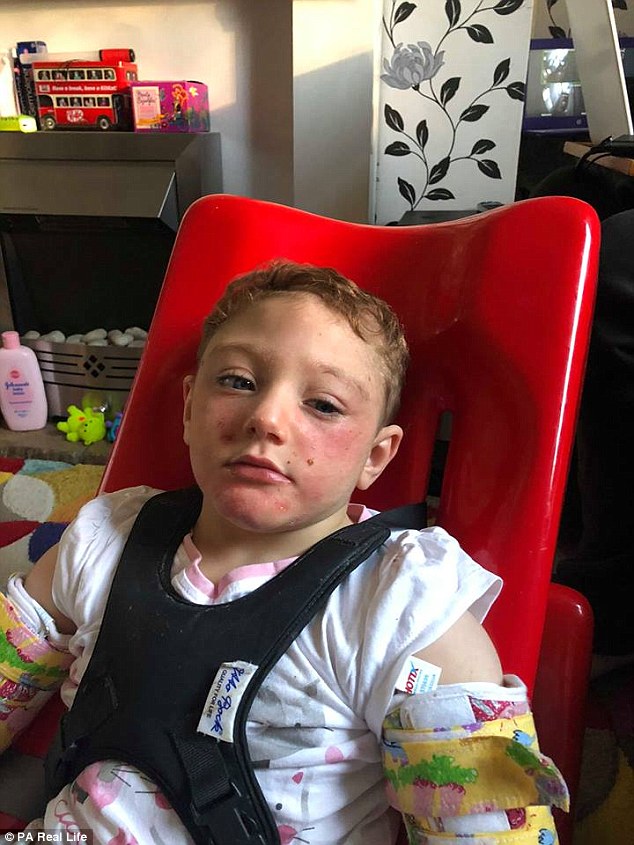
Alana has seizures every few weeks, with her family hoping medication will control them
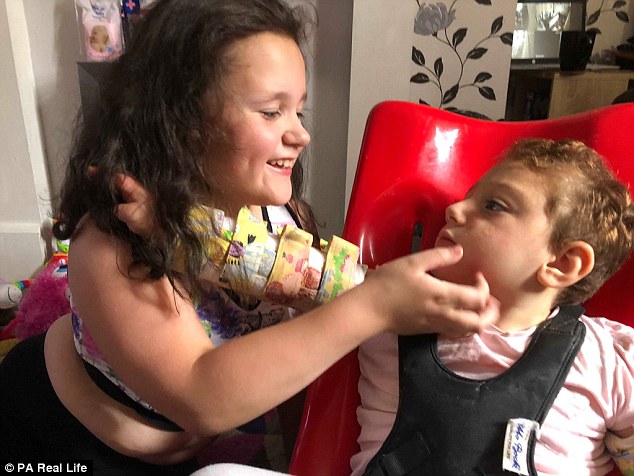
Alana’s sister Emily, nine, loves playing with the youngster, whose family ‘adore’ her
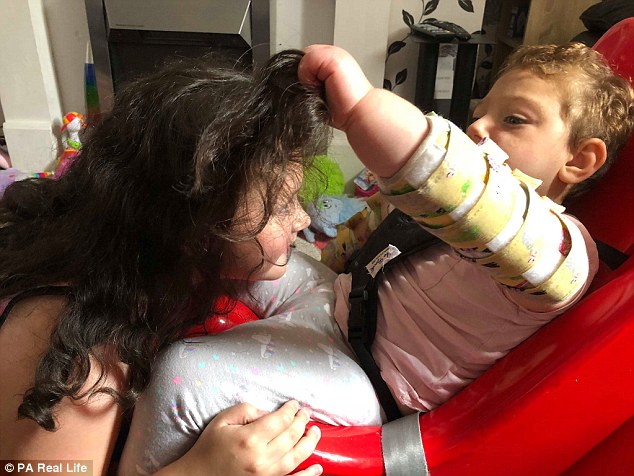
Ms Donlon said the family get on with caring for Alana, adding they are a family and love her
‘She’s a miracle baby and we adore her’
Initially, doctors planned to wait until Alana was older and stronger to remove the external brain, however, concerned it was getting bigger, they decided to operate.
Ms Donlon said: ‘It was quite scary as they were removing some of her brain. We were so pleased that she came through that and was doing so well.
‘Amazingly, a week later, she was able to come home, which was fantastic.’
While Alana is able to live at home, she has been left severely disabled by her condition and the surgery.
Ms Donlon said: ‘She needs full-time care and will for the rest of her life.
‘She is registered blind, has significant brain damage, is physically and mentally disabled, and doesn’t walk. She can’t sit up by herself, but has just learnt to roll over.
‘She started having seizures about six months ago, which happen every few weeks, but we are hoping that we will be able to get medication to bring them under control.’
One of the most difficult things for Ms Donlon is that, for unknown reasons, Alana tries to harm herself by cutting her face with her fingernails.
Ms Donlon said: ‘It can be really difficult, because Alana doesn’t understand.
‘We place gloves over her hands to stop her, but she does still manage it and we just have to watch her 24/7. There have been times when her face has been covered in cuts.
‘Now she has started at a specialist school, though, and she is doing well. She enjoys it and it’s great to see her with other children.
‘She may have her difficulties, but she’s a miracle baby and we adore her.
‘We just do what we have to do. We are a family and we love her. Her sister Emily loves playing with her, too.’


